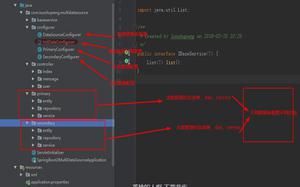python连接数据库后怎样查询[mysql教程]

Python查询Mysql使用fetchone()方法获取单条数据,使用fetchall()方法获取多条数据。
fetchone():该方法获取下一个查询结果集。结果集是一个对象
fetchall():接收全部的返回结果行。
rowcount:这是一个只读属性,并返回执行execute()方法后影响的行数。
1、使用fetchone()方法获取结果集
import pymysql
# 打开数据库连接
db = pymysql.connect("localhost", "root", "123456", "test")
# 使用cursor()方法获取操作游标
cursor = db.cursor()
# SQL 查询语句
sql = "SELECT * FROM EMPLOYEE
WHERE INCOME > '%d'" % (1000)
try:
# 执行SQL语句
cursor.execute(sql)
print(cursor.rownumber)
result = cursor.fetchone()
while result!=None:
print(result, cursor.rownumber)
result = cursor.fetchone()
result = cursor.fetchone()
print(result, cursor.rownumber)
result = cursor.fetchone()
print(result, cursor.rownumber)
except:
print ("Error: unable to fetch data")
# 关闭数据库连接
db.close()
输出结果:
0
('Mac', 'Mohan', 20, 'M', 2000.0) 1
('Marry', 'Mohan', 32, 'M', 3000.0) 2
('Bob', 'Mohan', 21, 'F', 4000.0) 3
None 3
None 3
结论:
执行cursor.execute(SQL)语句后,光标指向第一条记录之前的位置。
执行cursor.fetchone()语句之后,fetchone()方法返回光标指向的下一条记录,同时光标指向当前记录的下一条记录。
当光标已经指向最后一条记录时,再次执行cursor.fetchone()语句后,结果返回无,光标不再向前移动。
2:fetchall():接收全部的返回结果行
import pymysql
# 打开数据库连接
db = pymysql.connect("localhost", "root", "123456", "test")
# 使用cursor()方法获取操作游标
cursor = db.cursor()
# SQL 查询语句
sql = "SELECT * FROM EMPLOYEE
WHERE INCOME > '%d'" % (1000)
try:
# 执行SQL语句
cursor.execute(sql)
# 获取所有记录列表
results = cursor.fetchall()
for row in results:
fname = row[0]
lname = row[1]
age = row[2]
sex = row[3]
income = row[4]
# 打印结果
print("fname=%s,lname=%s,age=%d,sex=%s,income=%d" %
(fname, lname, age, sex, income))
except:
print ("Error: unable to fetch data")
# 关闭数据库连接
db.close()
更多技术请关注python教程。
以上是 python连接数据库后怎样查询[mysql教程] 的全部内容, 来源链接: utcz.com/z/526996.html






